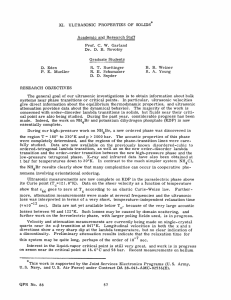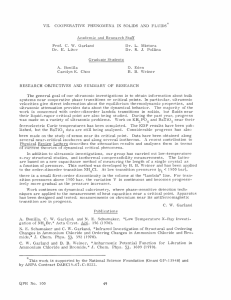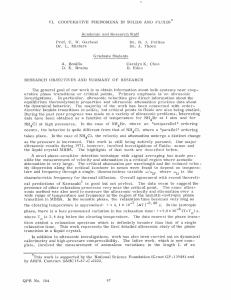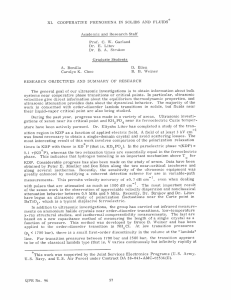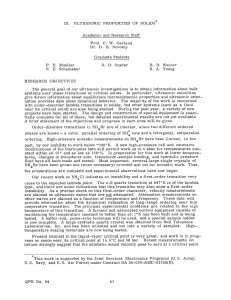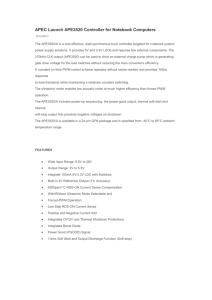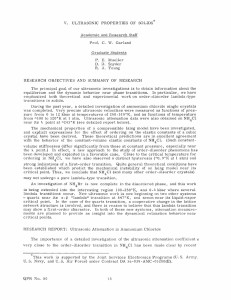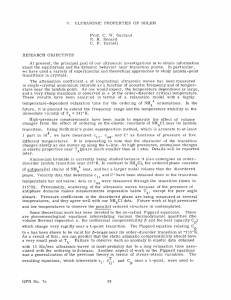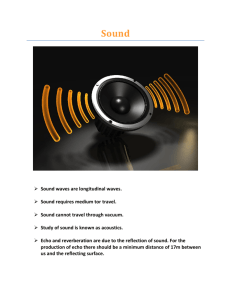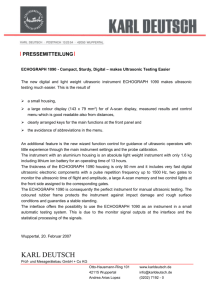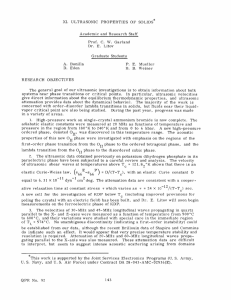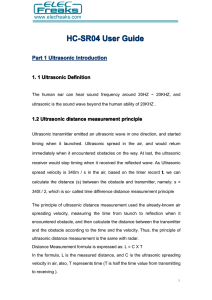VI. COOPERATIVE PHENOMENA IN SOLIDS AND ...
advertisement
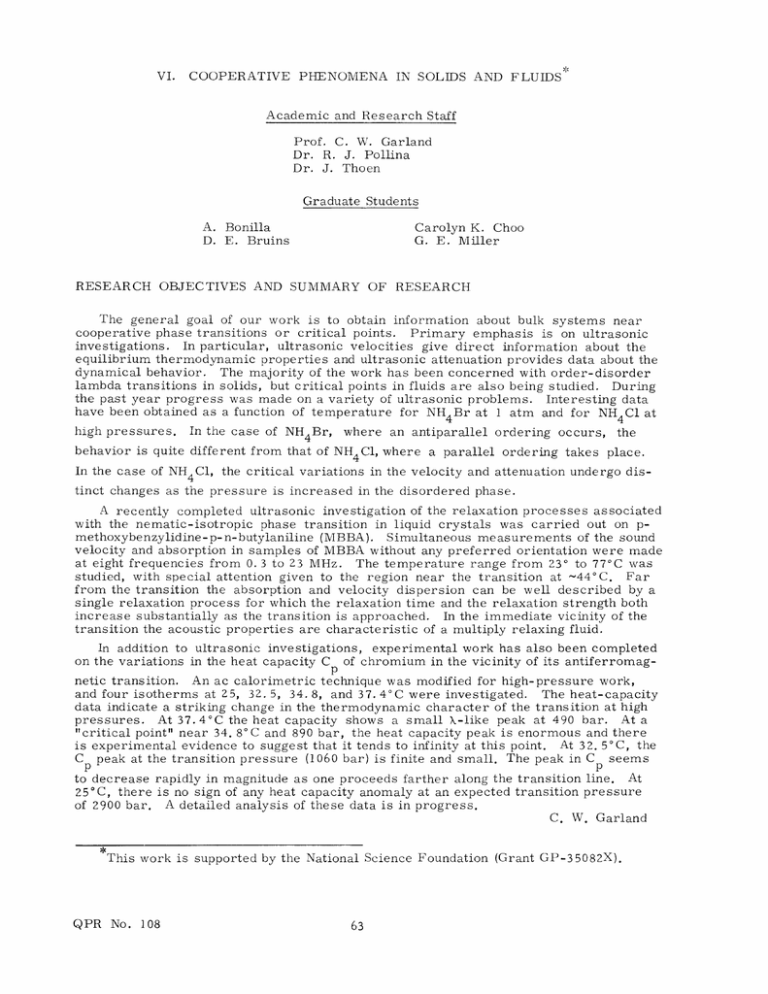
VI. COOPERATIVE PHENOMENA IN SOLIDS AND FLUIDS Academic and Research Staff Prof. C. W. Garland Dr. R. J. Pollina Dr. J. Thoen Graduate Students A. Bonilla D. E. Bruins Carolyn K. Choo G. E. Miller RESEARCH OBJECTIVES AND SUMMARY OF RESEARCH The general goal of our work is to obtain information about bulk systems near cooperative phase transitions or critical points. Primary emphasis is on ultrasonic investigations. In particular, ultrasonic velocities give direct information about the equilibrium thermodynamic properties and ultrasonic attenuation provides data about the dynamical behavior. The majority of the work has been concerned with order-disorder lambda transitions in solids, but critical points in fluids are also being studied. During the past year progress was made on a variety of ultrasonic problems. Interesting data have been obtained as a function of temperature for NH4Br at 1 atm and for NH 4C at high pressures. In the case of NH 4 Br, where an antiparallel ordering occurs, behavior is quite different from that of NH 4 C the 1, where a parallel ordering takes place. In the case of NH 4 C1, the critical variations in the velocity and attenuation undergo distinct changes as the pressure is increased in the disordered phase. A recently completed ultrasonic investigation of the relaxation processes associated with the nematic-isotropic phase transition in liquid crystals was carried out on pmethoxybenzylidine-p-n-butylaniline (MBBA). Simultaneous measurements of the sound velocity and absorption in samples of MBBA without any preferred orientation were made at eight frequencies from 0. 3 to 23 MHz. The temperature range from 230 to 77 0 C was studied, with special attention given to the region near the transition at -44oC. Far from the transition the absorption and velocity dispersion can be well described by a single relaxation process for which the relaxation time and the relaxation strength both increase substantially as the transition is approached. In the immediate vicinity of the transition the acoustic properties are characteristic of a multiply relaxing fluid. In addition to ultrasonic investigations, experimental work has also been completed on the variations in the heat capacity C of chromium in the vicinity of its antiferromagnetic transition. An ac calorimetric technique was modified for high-pressure work, and four isotherms at 25, 32. 5, 34. 8, and 37. 4°C were investigated. The heat-capacity data indicate a striking change in the thermodynamic character of the transition at high pressures. At 37.4°C the heat capacity shows a small X-like peak at 490 bar. At a "critical point" near 34. 8°C and 890 bar, the heat capacity peak is enormous and there is experimental evidence to suggest that it tends to infinity at this point. At 32. 5 0 C, the C peak at the transition pressure (1060 bar) is finite and small. The peak in C seems p p to decrease rapidly in magnitude as one proceeds farther along the transition line. At 250C, there is no sign of any heat capacity anomaly at an expected transition pressure of 2900 bar. A detailed analysis of these data is in progress. C. W. Garland This work is supported by the National Science Foundation (Grant GP-35082X). QPR No. 108 (VI. COOPERATIVE PHENOMENA IN SOLIDS AND FLUIDS) Publications B. B. Weiner and C. W. Garland, "Order-Disorder Phenomena. VII. Critical Variations in the Length of NH4C1 Single Crystals at High Pressures," J. Chem. Phys. 56, 155 (1972). D. Eden, C. W. Garland, and J. Thoen, "Sound Absorption and Dispersion along the Critical Isochore in Xenon," Phys. Rev. Letters 28, 726 (1972). P. E. Mueller, D. Eden, C. W. Garland, and R. C. Williamson, "Ultrasonic Attenu227 ation and Dispersion in Xenon near Its Critical Point," Phys. Rev. A 6, (1972). D. Eden, C. W. Garland, and R. C. Williamson, "An Ultrasonic Investigation of the Nematic-Isotropic Phase Transition in MBBA," J. Chem. Phys. (in press). C. W. Garland, "Ultrasonic Investigation of the Lambda Transitions in NH 4 C NH 4 Br," J. Physique Suppl. (in press). and Theses A. Bonilla, "High-Pressure Heat Capacity of Chromium near Its Antiferromagnetic Transition Line," Ph.D. Thesis, Department of Chemistry, M. I. T., September 1972. QPR No. 108
